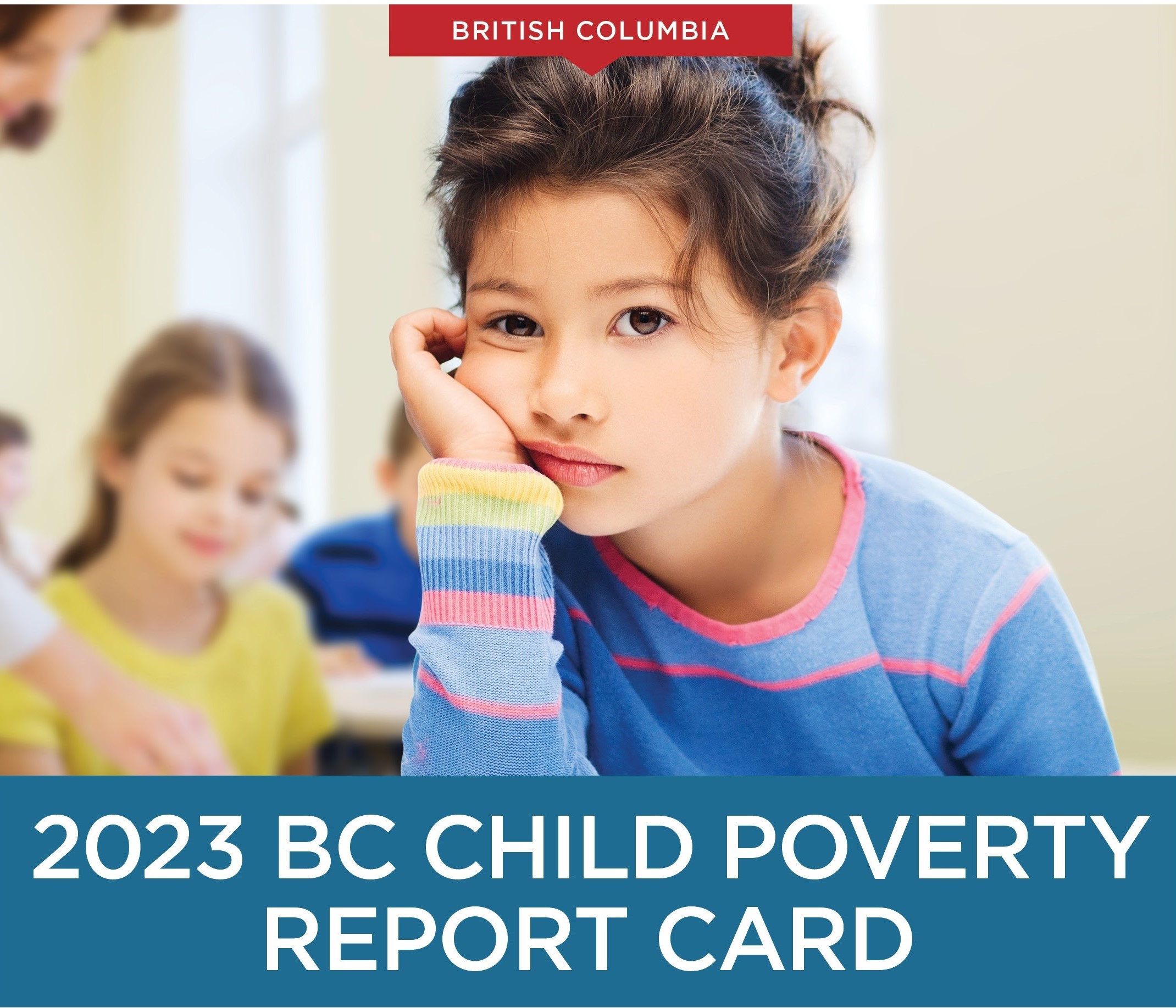
BC child poverty rates increase after COVID, First Call Child and Youth Advocacy Society reports
Vancouver, BC: First Call Child and Youth Advocacy Society has released its 27th annual BC Child Poverty Report Card that sheds light on the scope and causes of child, youth, and family poverty. The report points to the available policy solutions that would address root causes of BC child poverty rates and makes 25 recommendations for immediate action.
Despite some significant federal and provincial policy changes and improvements to income supports over the last twenty years, 126,120 children in BC remained living in poverty in 2021. Especially concerning is that, after a sharp decline in poverty rates due to CERB payments made during the COVID-19 pandemic, we note a steep rise in numbers once again. Compounding the problem of inadequate and stagnating incomes for families at or below the poverty line, are the soaring costs of food and housing — a trend we expect to continue in the near term.
“While this is the second consecutive year BC’s overall child poverty rate of 14.3% was lower than Canada’s child poverty rate (15.6%), we must be prepared to work continuously to address child poverty in BC and Canada,’ said Adrienne Montani, Executive Director of First Call. ‘The cost to so many children and youth growing up in poverty is simply too high for our society to bear,’ she said.
However, Montani also cited the growing income disparity between families in the province. In 2021 BC families in the highest income decile made 25 times what the families in the lowest income decile made based on their average after-tax incomes, versus the Canadian average ratio of 16 times.
Of note in the report: lone-parent families (the majority female-led) bear one of the highest the burdens of poverty in British Columbia. Children in these families had a 40.4% poverty rate in 2021. Pay inequity, low wages and a lack of affordable child care so that a lone-parent can improve their job prospects, are all barriers that keep children in single-parent households living far below the poverty line.
The child poverty rate on some BC First Nations reserves continues to be substantially and unacceptably higher than the overall BC rate. In 2021, child poverty on 67 BC First Nations reserves stood at 31%, or twice as high as the provincial rate.
Arab, Korean, and West Asian children had more than double or triple the risk of poverty compared to non-racialized children, followed by Chinese and Latin American children. Recent immigrant children were also at a higher risk of poverty, with more than 1 in 5 (21%) living in poverty in BC in 2020.
“We need to build on the lesson of the dramatic drop in child poverty in 2020, which showed the power of better income support for families in need,” said Lorraine Copas, Executive Director of SPARC BC. “By enhancing policy tools already in place, such as federal and provincial child benefits for families, we can stop the return of higher child poverty rates and work toward eliminating child poverty in Canada as promised so long ago.”
First Call’s BC Child Poverty Report Card is written and produced as part of Campaign 2000, a cross-Canada public education movement bolstered by 120 national, community and provincial partners to build Canadian awareness and support for the 1989 all-party House of Commons resolution to end child poverty in Canada.
Read the full report with recommendations, here.
—30—
About First Call
First Call Child and Youth Advocacy Society is a registered charity in British Columbia. We conduct research and analysis on child and youth rights and well-being, offer education and training events, and make policy recommendations to promote, strengthen and defend the rights of children and youth in BC.
For more information, or to arrange interviews please contact: Judy Rudin, Communications and Development Coordinator at info@firstcallbc.org Phone: 604-288-8102.
